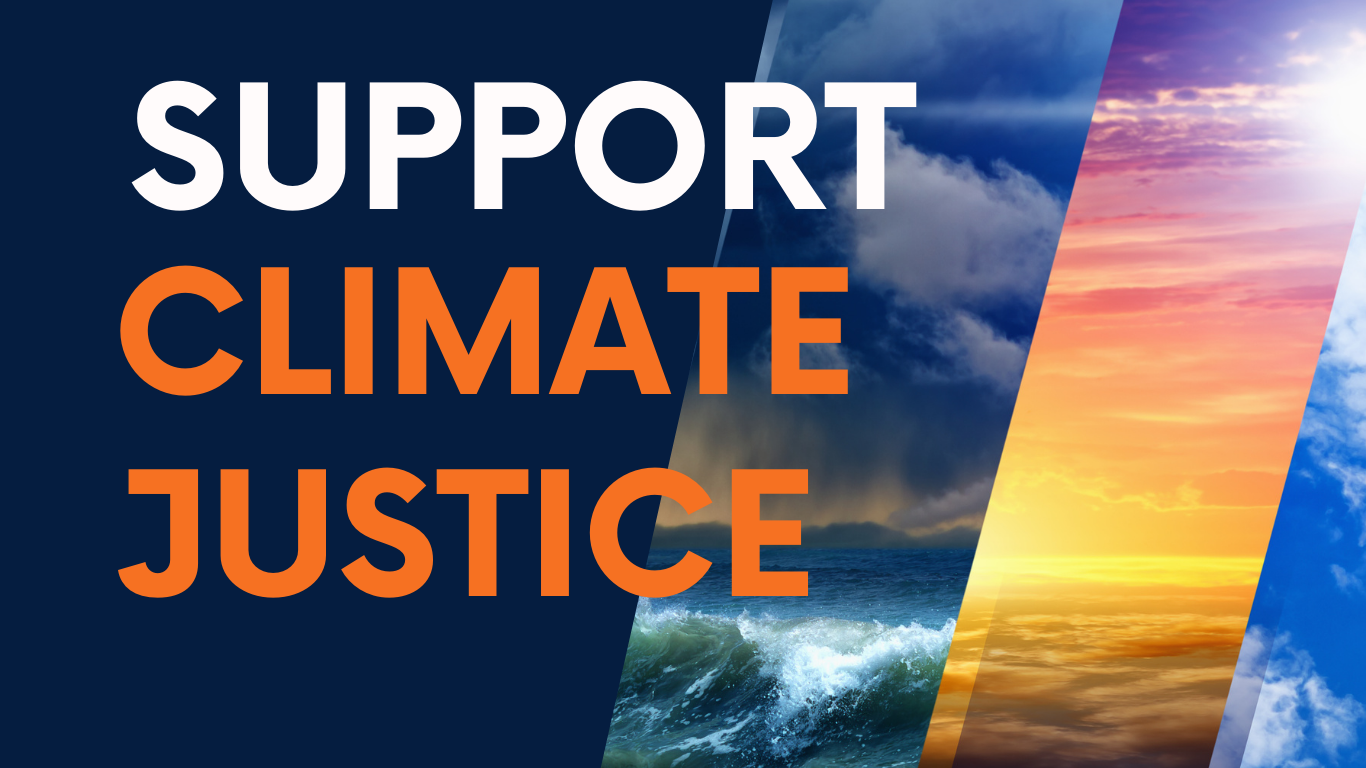By Britney Nurse
This story examines the relationship between climate change and health and identifies the gaps in research within the Caribbean and highlight possible solutions to bridge those gaps
As a young Caribbean woman in her 20s, the feeling of powerlessness should not appear as much as it does. But when you are one of many struggling to free ourselves from a baleful overwhelming force holding us down, rejecting our tears and our pleas, limiting our voices, it is easy to give up and count our losses. The climate crisis continues to take all that it can grab its hands on, including our homes, our livelihoods and even our own people. Gruesomely, even our will to survive.
The disruption of our climate system is now occurring in plain view – with a growing human toll brought by powerful storms, flooding, droughts, wildfires, and rising numbers of insect borne diseases. Psychological stress, political instability, forced migration, and conflict are other unsettling consequences. In addition, particulate air pollutants released by burning fossil fuels are shortening human life in many regions of the world. Climate change may be the greatest health challenge of the twenty-first century. Although we will experience the health impacts of climate change, certain groups – children, the elderly, the underserved and minority communities – are less climate-resilient and, as a result, are more vulnerable to negative health effects of climate change.
When it comes to health and curing the sick, physicians are responsible for safeguarding the health and alleviating suffering from the patients they tend to. However at the rate of the climate disruption and its impact on us as Earth’s inhabitants, tackling the associated challenges of the phenomenon can be overwhelming. Working to rapidly curtail greenhouse gas emissions is now essential to many health professionals’ healing mission.
Doctors join Extinction Rebellion activists in London to push for action on climate change in 2019. Chris J Ratcliffe / Getty Images
Impact of Fossil Fuels
Energy has allowed for many advances in our lives including power for homes, jobs and vehicles. But the energy used to fuel these advancements has contributed to climate change. When we burn fossil fuels, such as coal and gas, we release carbon dioxide. Carbon dioxide builds up in the atmosphere and causes Earth’s temperature to rise, much like a blanket traps in heat. This extra trapped heat not only increases temperatures, but it also disrupts many of the interconnected systems in our environment. This is climate change, and its conditions have far-reaching environmental, social, agricultural and economic effects that are ultimately harmful to our health and well-being.
As the frequency of extreme weather events continues to increase — including droughts and wildfires, extreme storms and power outages, and record-breaking warmth and extreme heat events — our reliance on electricity builds, resulting in added strain on the energy infrastructure. Frequent extreme weather events will also promote health disparities and inequities among vulnerable populations. Many communities transitioning away from fossil fuel extraction, especially in Trinidad and Tobago, have expressed serious concerns about job loss and economic downturn due to reliance on fossil fuels, especially oil and natural gas. Thus, there are even equity concerns in the transition away from fossil fuel reliance.
Children, older adults, people with chronic disease or mental health issues, those who work or exercise outdoors and live in low-income and minority communities need special attention. Neighbourhoods with the fewest resources are most susceptible to extreme weather. Redlining practices (restricting access to housing and services based on race or ethnicity) have contributed to communities overpopulated with people of colour in areas that are less desirable and more climate-vulnerable, such as flood zones and urban heat islands. Poor construction and low availability of affordable housing add to the unjust burden during and after a disaster.
Mental Health
Climate change not only harms our physical health; it also threatens our mental wellness. Climate events, such as extreme storms or extreme heat, can lead to depression, anger and even violence (APA, 2023). Depending on the type of disaster and resulting displacement, climate change can cause and intensify stress and anxiety. It has been reported that between 25 and 50 percent of people exposed to a natural disaster are at risk for mental health effects. The onset of climate change events can adversely impact mental health acutely, gradually and indirectly.
Although we are all at risk, certain groups are more susceptible to distress, and other mental health problems linked to climate change-related exposures. Children, the elderly, women (particularly pregnant women and mothers of newborns), minorities, the poor, the homeless, people with preexisting mental illness and first responders are more vulnerable to negative mental health outcomes. Communities that rely on the natural environment for sustenance and their livelihood are also in danger of adverse mental health consequences, e.g. agricultural workers and indigenous communities. Patients with mental health challenges are especially vulnerable to heat waves.
Unfortunately, in the Caribbean, there is limited research on public health preparedness and response to storms, floods, drought and on the environmental determinants of health. We need national attention focused on the environmental injustices and lack of health equity that affect local native and indigenous communities.
Role of Indigenous Communities
To combat the effects of climate change, many indigenous communities are looking to their own cultural knowledge and practices. Over generations, indigenous people have gained a key understanding of the connection between human interaction with the environment and its impacts on human health and well-being.
This traditional ecological knowledge provides indigenous communities with a holistic view of climate change effects and a unique approach to interpreting climate research. And the knowledge is an essential resource for anticipating climate change impacts and designing adaptation responses in tribal communities that include identifying food substitutions, adjusting hunting and fishing cycles and practices and more. Working in partnership with indigenous communities is essential to moving forward.
Water Quality & Accessibility
Water is a necessity of human life, and everyone deserves access to clean and safe water. After all, humans are made up of approximately 60 percent water. Unfortunately, climate change jeopardizes the quality and safety of our water. Warmer weather causes more water to evaporate, allowing the air to hold more water. This sets the stage for heavier rainfall and flooding, which decreases the quality of our water and increases health risks.
Access to clean water is a fundamental human right, yet some communities bear an inequitable burden of unsafe water. Children are especially susceptible to waterborne illness because they take in more water per body weight than adults, and their organ systems are still developing. Elderly people may be less resilient because many have pre existing chronic diseases that cause their immune system to be weakened. The aging infrastructure of our water system leaves low-income communities at higher risk of exposure as those communities may not have resources available to fix the problem. Our flood protection infrastructure must also be equipped to protect all communities. Consider Hurricane Irma or Hurricane Maria as an example: it was not the hurricane itself that resulted in mass destruction, but the flooding that led to property damage, injury and mold infestation/growth.

From a scoping review conducted which examined 27 studies done in the Caribbean with linkages to climate change and health, it was found that participants made associations between climate change and health related to vector borne disease, disasters, water quality, food safety, heat, and air quality. While there has been increased engagement by countries in climate and health assessments, there is few literature related to application, their utility and success and how this supports the development of climate resilient health systems. Early warning systems and health vulnerability and adaptation assessments would better prepare Caribbean communities for the impacts of climate change as it relates to vectors, air quality, respiratory illnesses, and others.
Understanding public perceptions of climate change and health is important to enable policy makers to develop targeted communication strategies to mitigate climate change and the effects it has on human health. To move the climate and health agenda forward in the Caribbean, networks must be formed to engage the research community, civil society, and ministries to bolster climate and health practice. Increased emphasis should be placed on improving public health and health systems preparedness and response to increasing and more intense storms. National systems need to be put in place to get the public more involved in climate and health, supported by more awareness research. Finally, developing and training the climate and health workforce, and increasing external collaboration and financing are all necessary elements to increase levels of research in the Caribbean.
This story is published with the support of the Caribbean Climate Justice Journalism Fellowship, which is a joint venture between Climate Tracker and Open Society Foundations.







